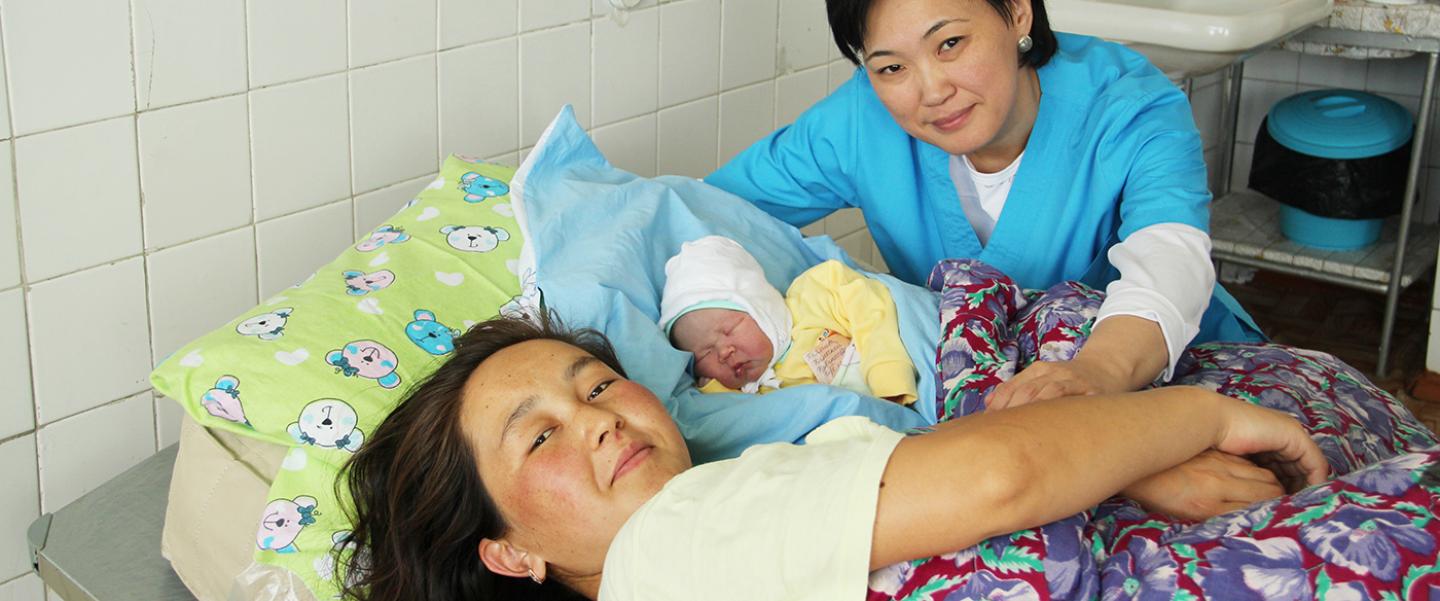HIGHLIGHTS
- Abt was tasked with building on the Zdrav series of health system strengthening projects.
- With our partners, we created an environment for sustainable improvements in care at the facility level.
- The project helped stakeholders more effectively meets the needs of vulnerable populations.
The Challenge
Abt Global implemented the five-year, USAID-funded Quality Health Care Project (QHCP) in Central Asia through 2015. This contract continued and expanded the company's transformational work under the “Zdrav” series of projects (ZdravReform, ZdravPlus, and ZdravPlus II), which made significant progress in strengthening health systems and improving the quality of health services in Kazakhstan, Kyrgyzstan, Tajikistan, Turkmenistan, and Uzbekistan. Building on these earlier successes, QHCP improved the health of Central Asians by strengthening health care systems and services, particularly in the areas of HIV and AIDS, tuberculosis control, maternal and child health, evidence-based medicine, and rational use of antibiotics.
The Approach
The project collaborated closely with national partners—including Project HOPE, AIDS Projects Management Group, and Scientific Technology and Language Institute—to introduce evidence-based approaches, improve the policy environment, empower communities to respond to health needs, and institutionalize monitoring and feedback systems to allow for sustainable improvements in quality of care on the facility level. Lessons learned at the community and facility levels informed policy interventions.
The Results
Through an integrated health systems approach, the project assisted governments and communities to more effectively meet the needs of vulnerable populations, increasing utilization of health services and improving health outcomes.
.

